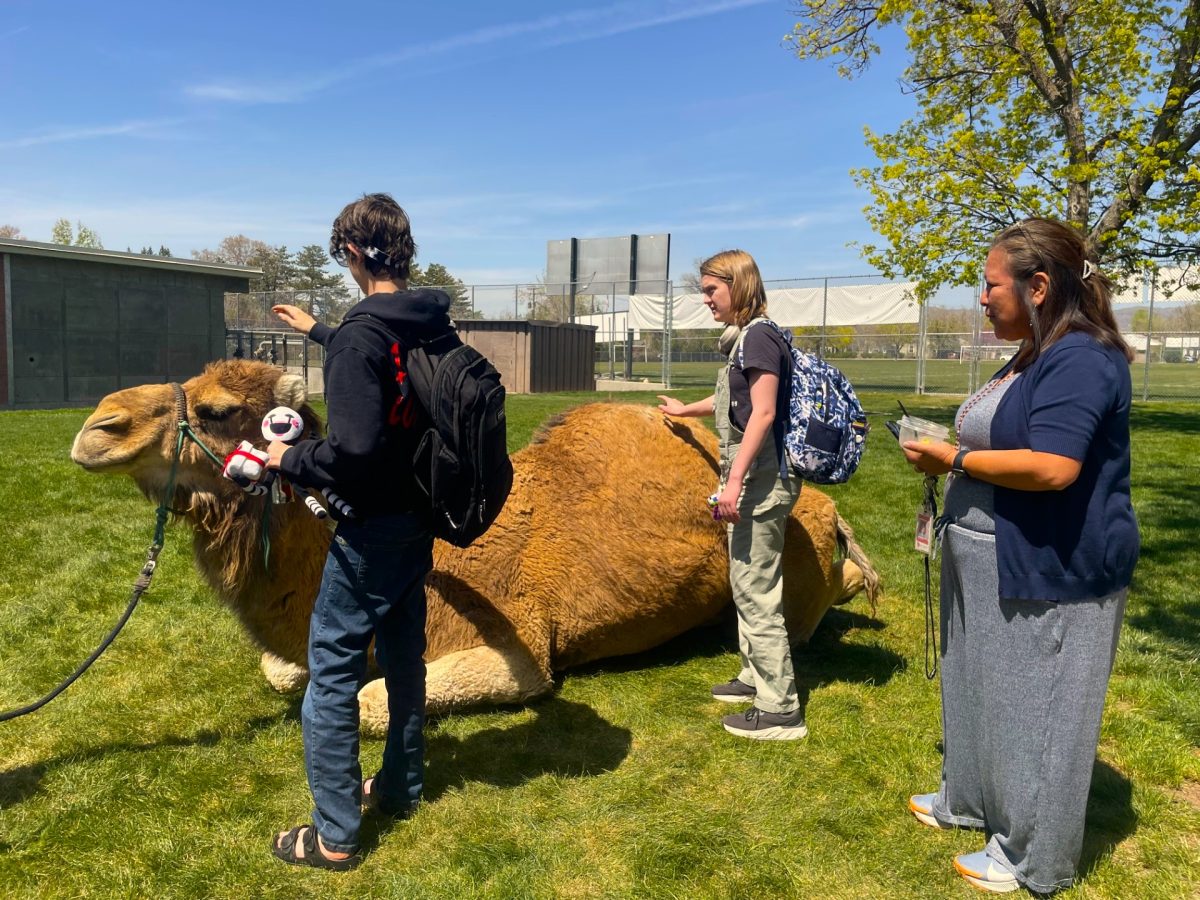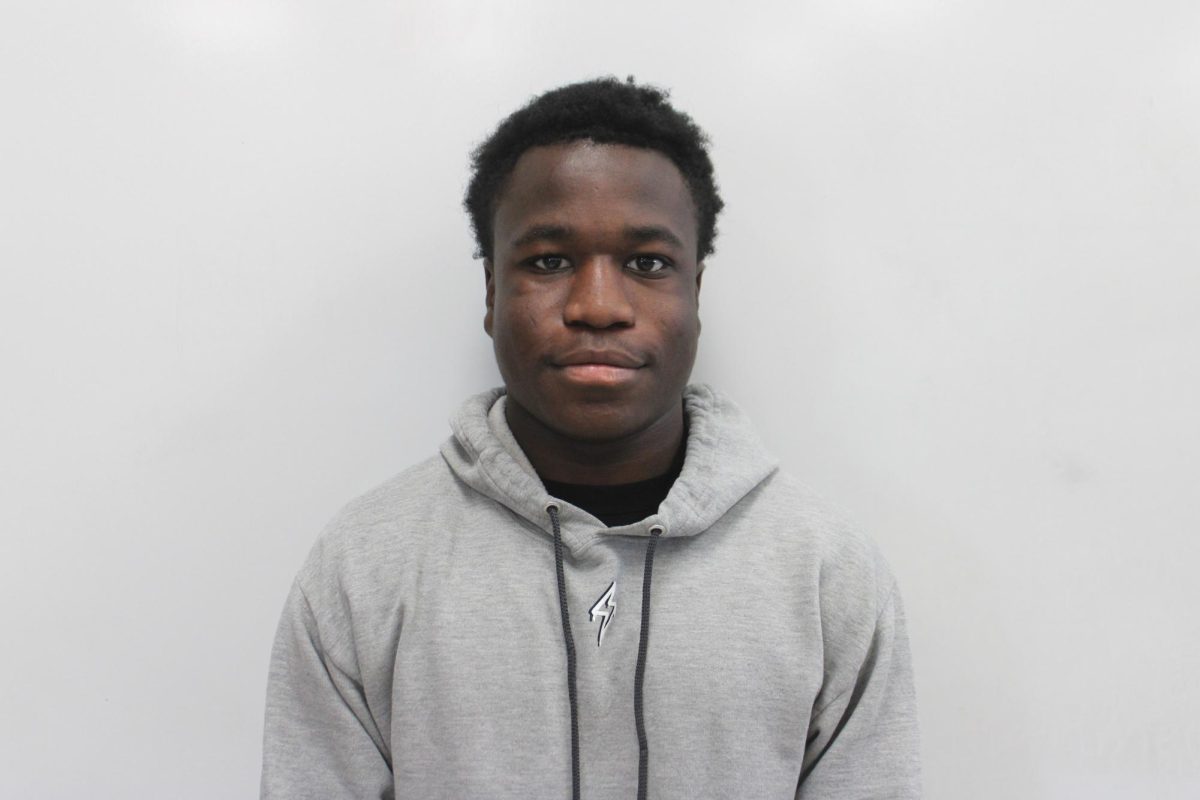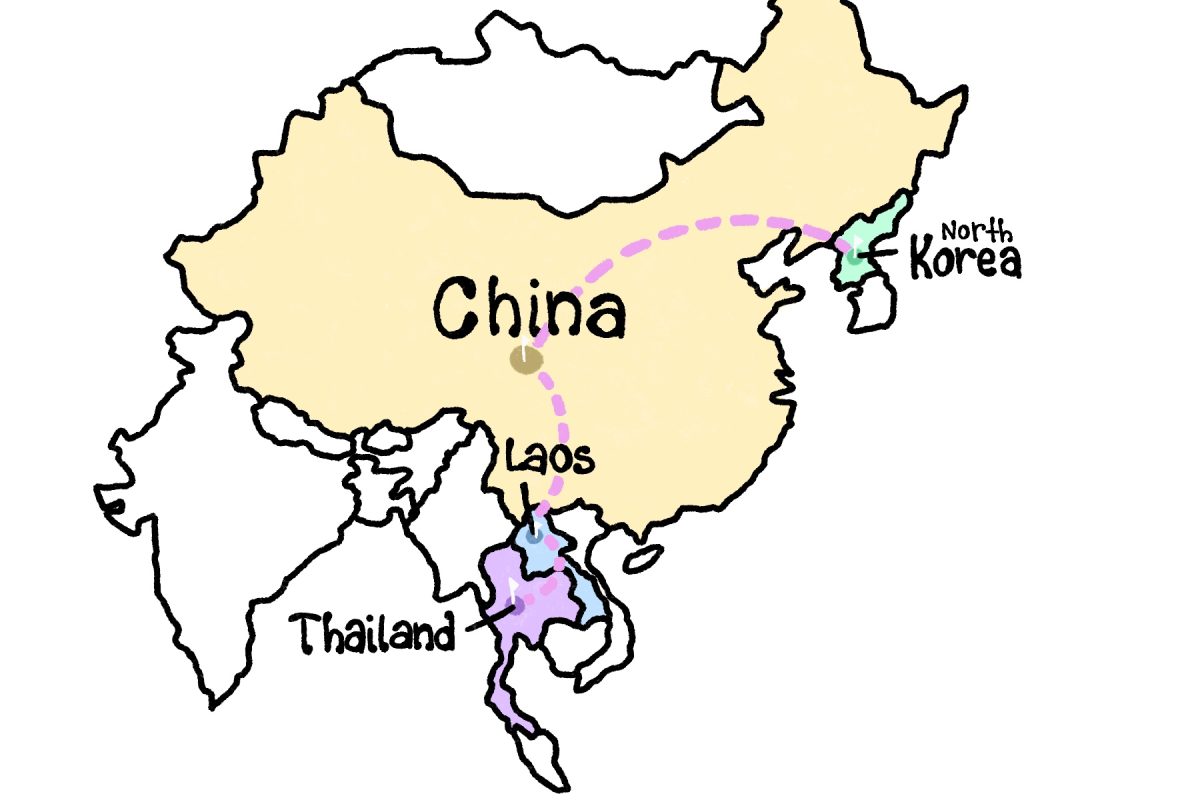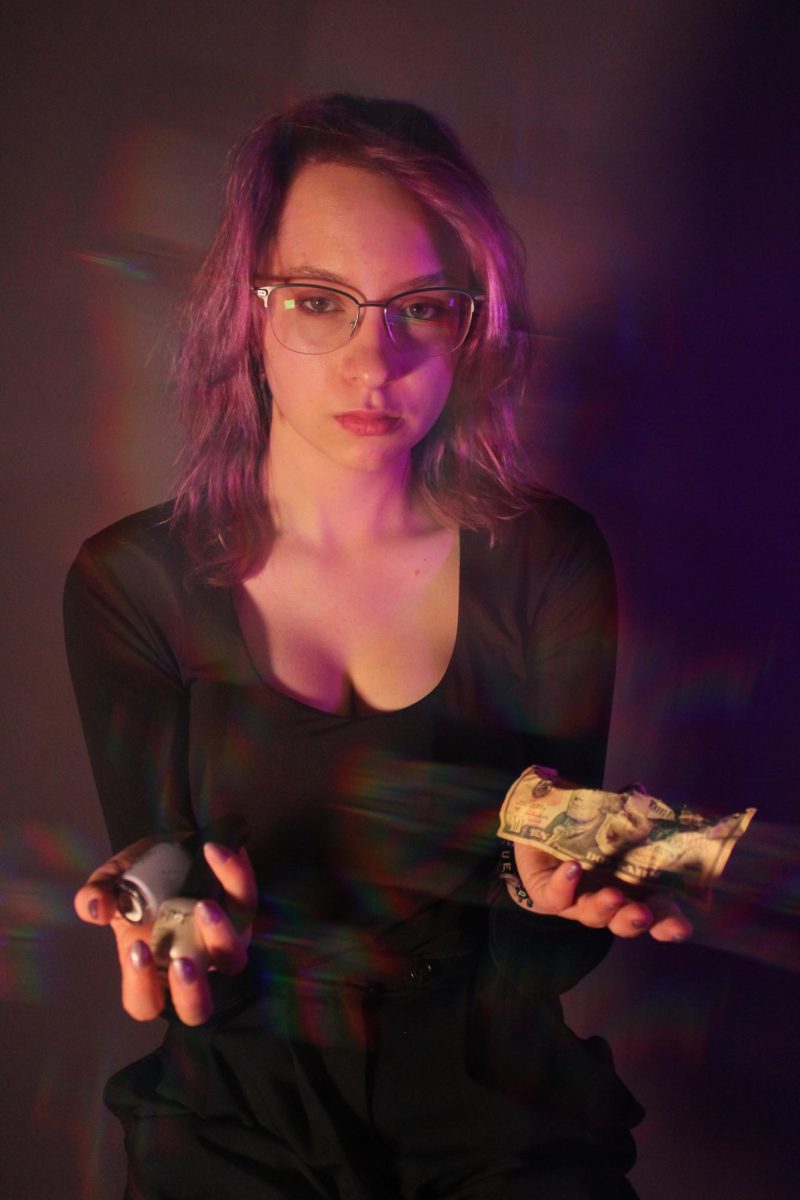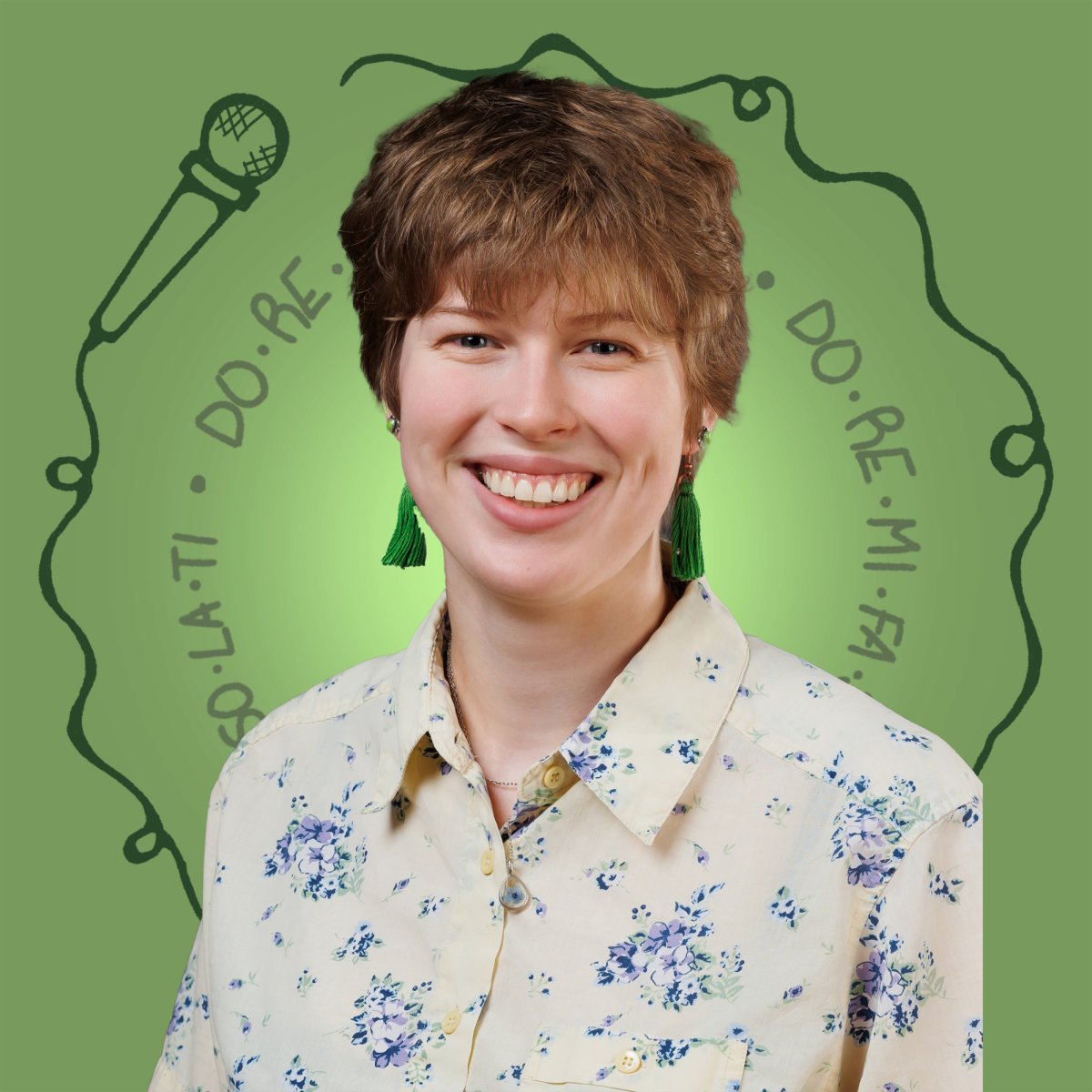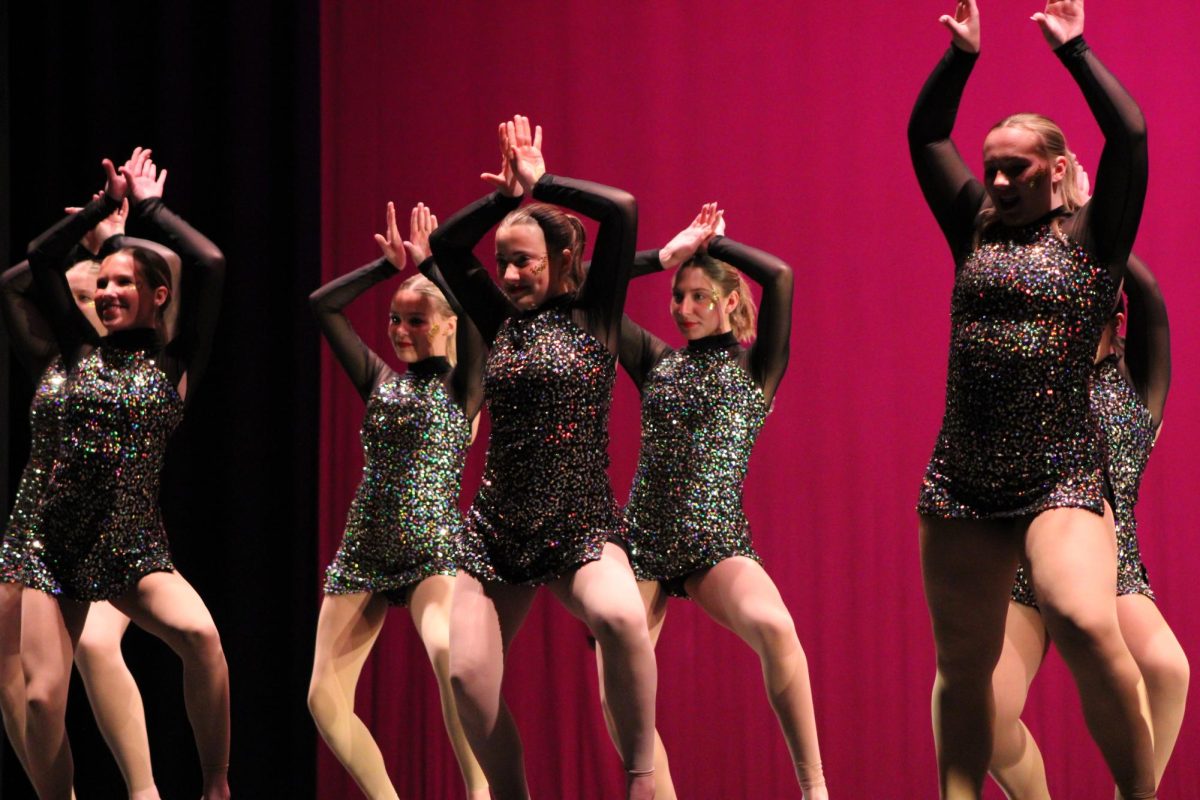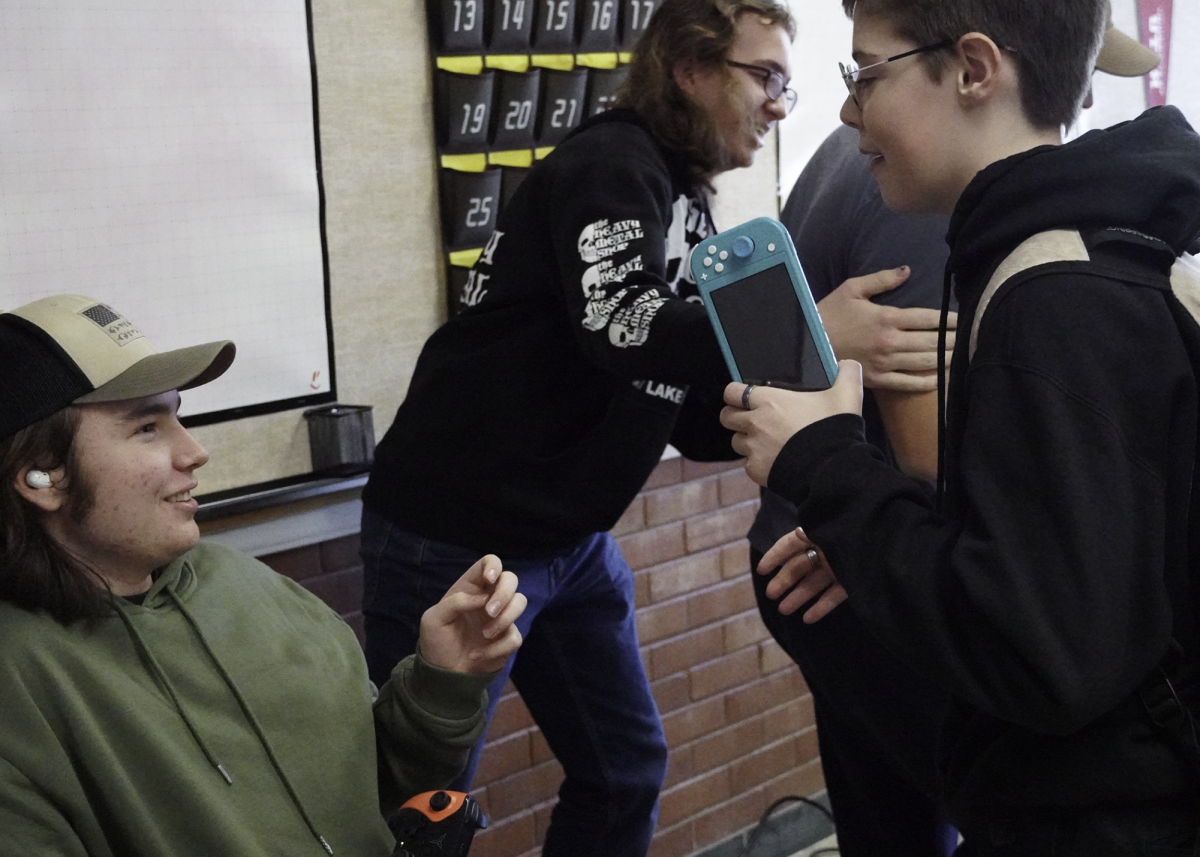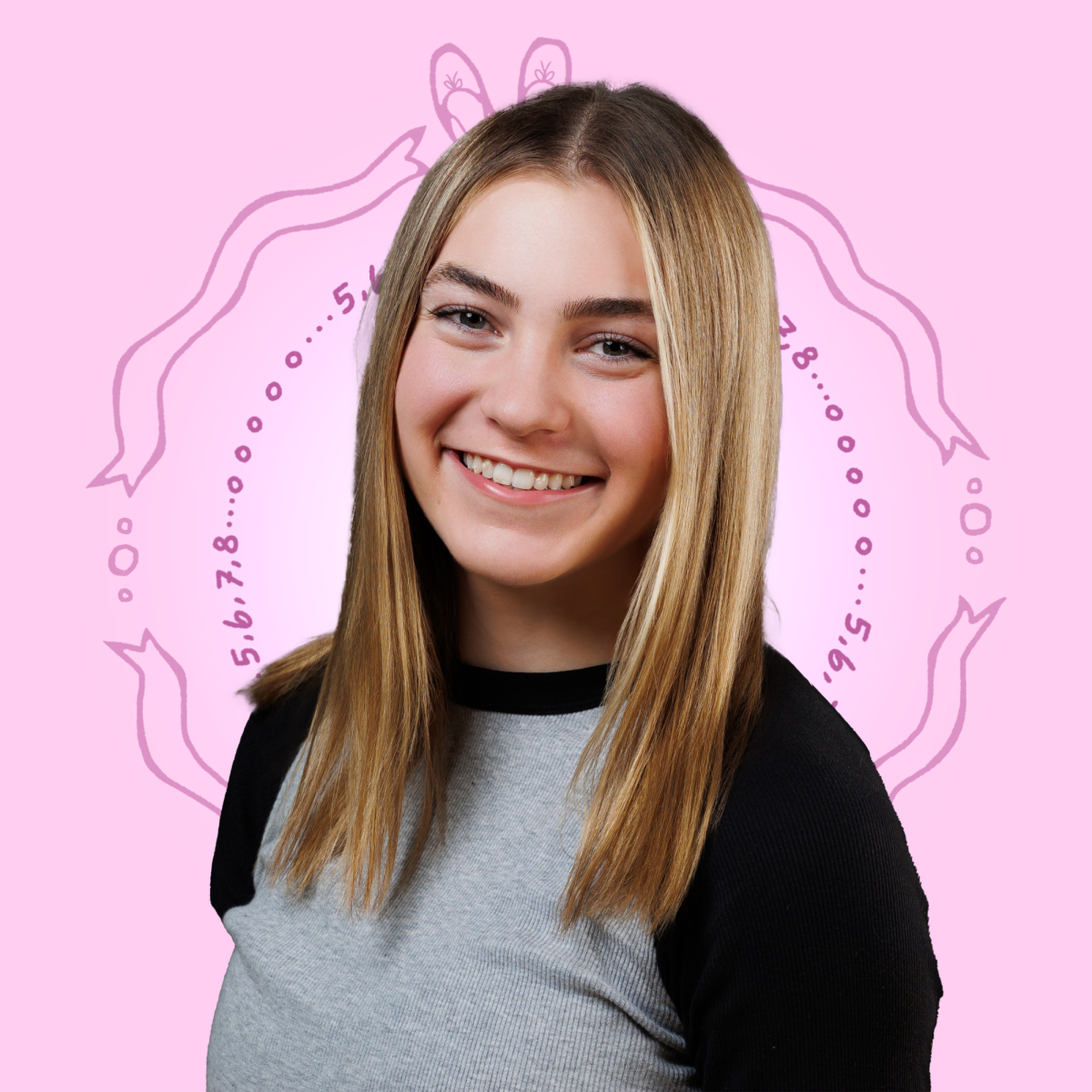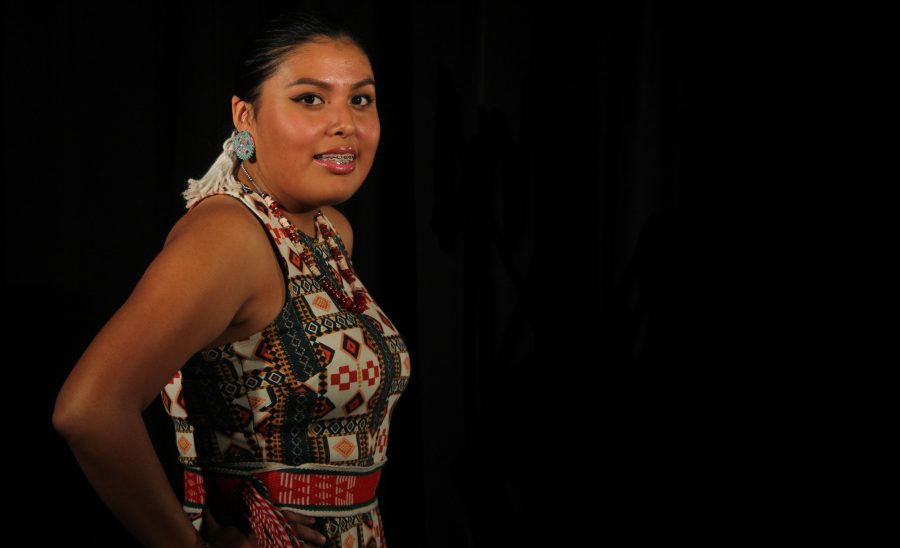Tiara Willie Proud Of Her Heritage
This traditional Navajo dress is one item that Willie highly treasures as it represents her heritage.
December 16, 2016
Tiara Willie laughs as many self-deprecating people do before they impress everyone. Her laugh fades and she begins to string words together to form something that, to the untrained ear and unintelligent mind, almost sounds like beautiful foreign music—but it’s language. Navajo to be exact. A language that is considered one of the most difficult in the world to learn or understand, and Willie has taught herself.
As one of the few Navajo people at Highland, Willie helps make up the one percent of the American Indian or Alaskan Native students at this school. Often mistaken and stereotyped as Hispanic just because of her skin color, many students fail to recognize that there are indigenous individuals in their classes; that their peers are not just a collection of what melanin makes up their skin tone, or what stigmas make up their culture. Willie looks at these misconceptions as an opportunity to show her peers that Native American individuals can be just as successful, while at the same time proud of where they came from.
Willie was born in Salt Lake City, but through family events found herself moving at a young age to a reservation in Lyanbito, New Mexico. No longer a minority one person might argue that her life got better, but they’d be wrong.
“Life on the reservation is miserable, in my opinion. To others it is just a lifestyle but to me, growing up to age five in Salt Lake and then moving to a reservation is bad. I was young, about six or seven years old when I moved back to the reservation with my grandmother,” she said, ”Then we moved back to Salt Lake City, then back again. It’s a bad lifestyle: drugs, alcoholism, and violence all around. The housing is very bad. In Lyanbito my family had to live with my grandmother in a shed. With five people in that tiny, tiny room, with one bed and one chair for us to sleep on.”
Many people would believe her troubles stopped there. But even when Willie moved to a reservation in Cornfield, Arizona, the horrible conditions persisted. Instead of living in a shed she now lived in a one-room house that had no modern necessities. Far away from everyone and everything she had to ride 30 to 40 minutes to and from school every single day.
“Sometimes we could barely afford food, clothes, or gas for a vehicle. My mother in order to work had to drive two hours back and forth for her job. It got to a point that in order to support things like Christmas and birthdays we had to sell valuable, meaningful things, and pick cans from the side of the road to recycle for money.”
Christmas in particular became a painful memory. For most Christmas’s in order to add to what they had the family had to sell what little they had. While Willie recounts these harrowing memories she stays incredibly stoic. But it is through listening to the details that it becomes easy to see how painful, but incredibly important her story is.
As one could imagine her return to Salt Lake was almost shocking. In many ways Willie’s life got better. Resources and opportunities became more available, and a life that could have potentially hardly resembled the one she had had presented itself.
“On the reservation I didn’t want to know my culture because only the Elders know it because everyone else is basically drinking or doing drugs. No one really told me and I had to basically learn my own language because my mom’s mom didn’t teach her so she had to learn on her own and I had to learn on my own,” Willie said.
But Willie does not want to forget the culture that has shaped so much of who she is today. The stigmas and obstacles have affected her past. But her culture, pure and simple—not to mention thousands of years old—is what affects her future.
“It wasn’t until I came to Salt Lake that I wanted to get close to my culture because I am now 500 miles away from my reservation. I want to represent my culture here. When you are down there it’s different, it is your everyday life. But when you are here you have to motivate yourself to become educated on your culture,” she said, “It wasn’t until I came here, got involved with the Native American Coordinators, and started doing really well in school that I actually wanted to learn more about my culture,” Willie said.
Willie has worked to maintain what aspects of her culture she was raised with, learn as many aspects as she doesn’t, and educate as many of her peers as she can about the importance of defying the stigma while connecting with one’s culture. It is through these efforts that she started the Native American Heritage Club at Highland, won second place in a state poetry contest celebrating Indigenous Day, and inspired her peers.
“She is very passionate about being Native American. When I first met her she told me that whenever she texts her Native friends that she talks to them in their language. She uses the words. I do not know much about my culture but she influences me. She is energetic, happy, and a great leader. She knows what she’s doing, she’s very smart. She wants to go far in life and she will,” club member Selena Williams-Perez said.
These words ring true as Johnson was the picture of poise as she conducted the first meeting of the Native American Heritage club. She had surveys made, a guest speaker scheduled, and ideas for the next week’s Indian Taco activity already in the works.
“She is a very motivated student and she works very hard. She knows what she wants, what she needs to do to get that, and how to get there,” Medical Anatomy and Physiology teacher Robert Campos says.
Willie knows that she wants to break the stereotype concerning Native Americans. She says that people read articles about people on reservations and that they often think that every Native American they meet must be like that. At Highland, students do not always fall into the category, but they frequently stereotype Johnson and her Native American peers.
“I have had racial comments directed at me. I’ve had someone mistake me for a Hispanic person by speaking to me in Spanish. I had to explain to them that I don’t speak Spanish and they replied, “Why don’t you speak your own language?” I explained to them that Spanish isn’t my language, Navajo is. Not everyone who is brown is Hispanic,” Willie said.
As Willie works to increase awareness and support she proves to not only defy the stigma but also provide support for those around her in the process. Willie shows that even though there is an unjust stereotyped that she herself can make a difference and be one of the reasons why those presumptions are not true.


